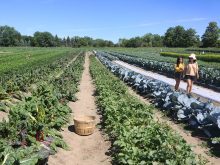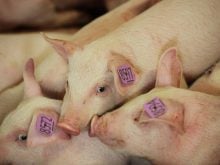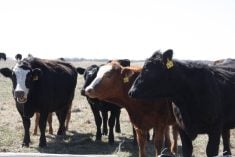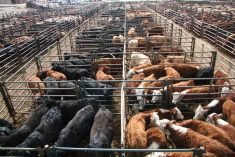Internal politics in Japan may keep Canadian beef out of the international market for some time yet.
Science, politics, business and consumer confidence are in conflict as pressure to reopen borders to Canadian beef and cattle continues, said Phil Seng, chief executive officer of the United States meat export federation based in Washington, D.C.
“There is a sense of extreme urgency in finding science-based alternatives to outright cessation of trade. We expect Japan and Korea and other nations to act with the same urgency to reopen their borders as well,” said Seng.
Read Also

VIDEO: Ag in Motion documentary launches second season
The second season of the the Western Producer’s documentary series about Ag in Motion launched Oct. 8.
A scientific investigation into Canada’s lone case of bovine spongiform encephalopathy diagnosed May 20 was completed with high praise from international observers for Canada’s actions, but foreign countries have not reopened their borders to Canadian beef. The issue was centre stage at an international beef congress in Calgary July 11.
Seng said the Japanese are particularly sensitive about BSE since they detected their own cases of the disease in 2001 and consumer confidence plummeted.
Labelling and food additives scandals mixed with political infighting have further eroded Japanese public confidence in the food supply and their government.
Japan has since instituted testing of all slaughter animals. That is beyond any recommended level of scrutiny, said Seng.
A mandatory traceback system for all domestic animals starts December 2004 in Japan and a new food safety committee was launched July 1.
Other Asian nations have followed Japan’s lead and have banned Canadian beef exports, even though investigators and international observers have declared it safe.
Japan has warned the U.S. that if it lifts its ban on Canadian beef, Japan may ban American beef fearing that Canadian meat could become mixed with American product.
The U.S. has so far kept its Canadian beef and cattle ban in place, even though American agriculture secretary Ann Veneman has declared Canadian beef to be safe. That move has ensured the U.S. doesn’t lose sales into Asian markets.
U.S. officials have also expressed concern that Canada’s regulatory changes could supersede American standards.
“If Canada builds higher firewalls than we currently have in the United States in terms of how you define SRMS (specified risk materials that could carry BSE), strengthen your feed ban or your animal ID program, our trading partners will become suspicious of U.S. beef,” Seng said.
It could force the industry to make chaotic change.
Seng said the U.S. and Canada must develop a sound, harmonized standard according to world animal health rules, or ISO 14001 standards, because these are accredited by the World Trade Organization.
However, Canada wants action on new standards immediately to save its beef industry, said the executive director of the Canadian Cattlemen’s Association.
Dennis Laycraft said reform through the world’s animal health body is slow because it only meets once a year.
Canada wants its live cattle under 30 months of age and beef from youthful animals allowed into the U.S. by the end of July.
This situation should be seen as an opportunity for Canada, Mexico and the United States to set a precedent for the rest of the world when dealing with BSE, said Laycraft.
He said new rules are necessary because a disease like BSE can ruin a national economy.
Other countries want this issue resolved as soon as possible, said Bilo Wallace, president of Ganandero Regional de Chihuahua in Mexico, a state beef association.
“If we use it as a trade barrier, it is going to come back and bite us. The quicker this gets resolved, it will be the best for everybody,” he said.

















